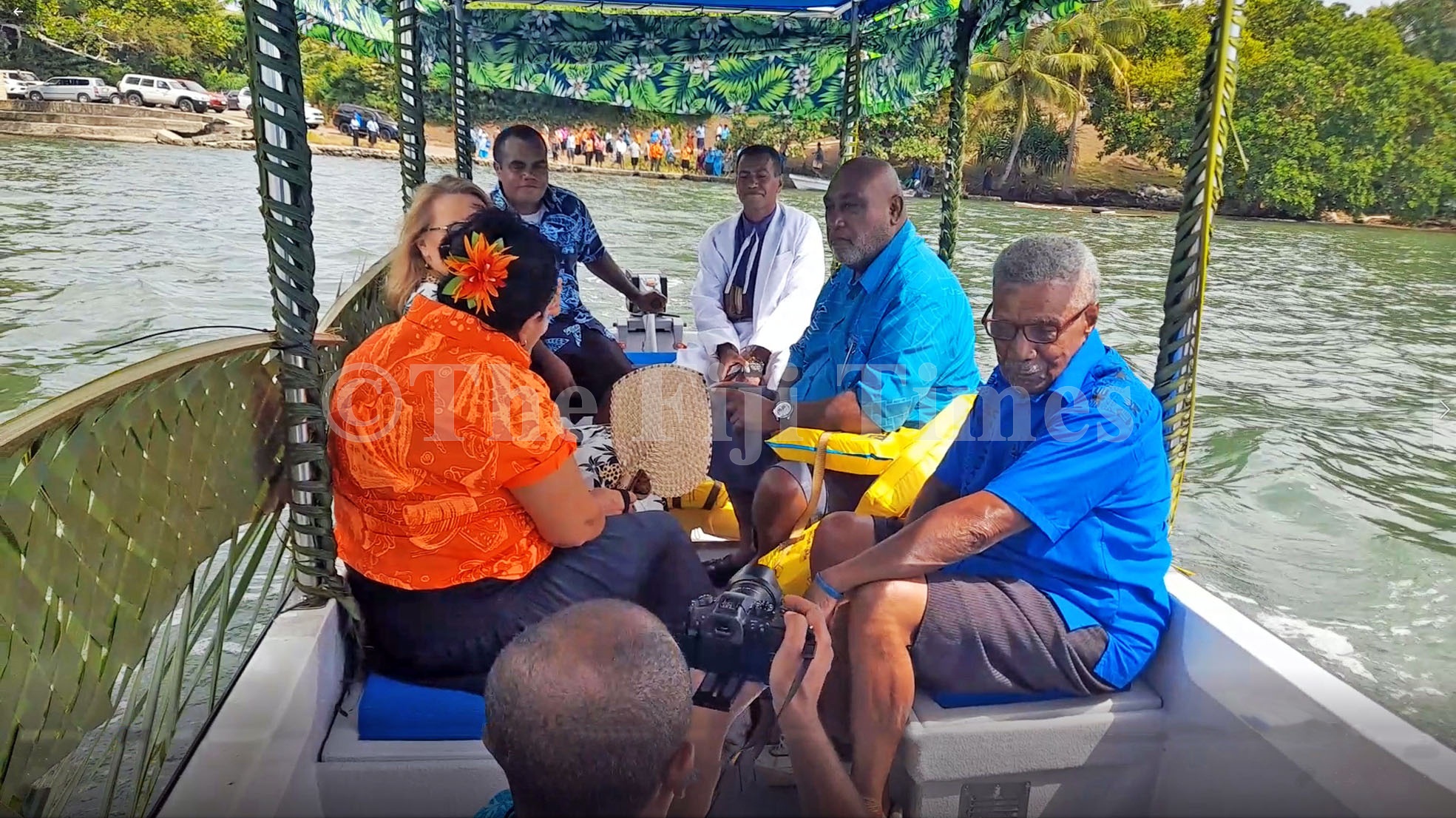Swimming out to sea to gather seafood will be a distance memory for many women of Nakalawaca Village in Namara, Tailevu after they received a solar-powered boat named the “Matanitokalau Princess” last week.
Having to swim or to build their own bilibili (bamboo rafts) to transport seafood to the village was a usual practice for women of Nakalawaca in the past as many of them relied solely on seafood to generate income or to sustain their families.
The launch of their new solar-powered boat not only brings relief to these women in gathering seafood daily, but it also brings small relief in the reduction on fossil fuel use within the maritime sector in the country.
The boat and solar outboard engine, which was launched by the Minister for Fisheries, Semi Koroilavesau, is a new and innovative technology that is being tested for the first-time in Fiji to determine its use and effectiveness for communities across the Pacific.
Funded by the European Union, the project according to the Pacific Community (SPC) is aimed at understanding new technologies that can assist communities to reduce their reliance on fossil fuels in the maritime sector.
SPC acting director Geoscience, Energy and Maritime (GEM) Division, Rhonda Robinson said the boat and solar engine takes the burden off the community to manage and maintain their coastal and marine resource whilst ensuring safe use of their own ocean which is critical for the future of the region.
“This is also the first time the women in the village will be trained and given their boat master licence which is a significant social shift for the community and SPC is very proud to support the priorities of Nakalawaca Village,” Ms Robinson said.
European Union in the Pacific deputy head of delegation Dr Erja Askola said the boat apart from being beautiful, ticks many boxes that work for sustainable development.
“First its green by impact, needs no fuel, involves no greenhouse gas emissions and second its economical, it will bring significant cost savings,” Ms Askola said.
“Fuel is indeed the greatest cost for boat operators in the Pacific. It is also estimated that 75 per cent of petroleum consumed across the Pacific is used for land and maritime transport.
“Any cut to this consumption works towards the transitions to green economies.”
Mr Koroilavesau, in launching the solar-powered boat, said the project showed that Fiji was proud to be the first pilot in this work in the region to really understand the benefit of transitioning towards clean, efficient and safe forms of marine transport.
“This is a call to our partners to support action that will help us to transition towards green shipping,” he said.
Nakalawaca Women’s Group president Taua Mereia said they are grateful for the assistance offered to them with the handover of their new solar-powered boat.
“This will be a big help for us women especially in going out to sea to gather seafood,” she said.
“Our main source of income here is seafood which is collected by women and sold at the Suva market.
“We often go out to fish and collect kaikoso (blood cockle) and its often done with women swimming with their containers.
“Apart from swimming, women also build bilibili (bamboo rafts) to use as boats if we hope to go further out at sea.”
Twenty five women from the village who are part of the women’s group are to benefit from the handover.
Nakalawaca Village has a population of about 150 people with 84 males and 66 females. |



